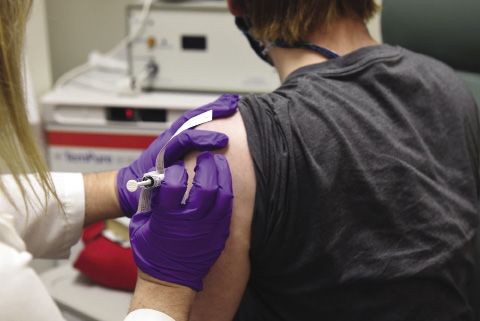
Processing Your Payment
Please do not leave this page until complete. This can take a few moments.
-
News
-
Editions
-
- Lists
-
Viewpoints
-
HBJ Events
-
Event Info
- 2024 Economic Outlook Webinar Presented by: NBT Bank
- Best Places to Work in Connecticut 2024
- Top 25 Women In Business Awards 2024
- Connecticut's Family Business Awards 2024
- What's Your Story? A Small Business Giveaway 2024 Presented By: Torrington Savings Bank
- 40 Under Forty Awards 2024
- C-Suite and Lifetime Achievement Awards 2024
- Connecticut's Health Care Heroes Awards 2024
-
-
Business Calendar
-
Custom Content
- News
-
Editions
View Digital Editions
Biweekly Issues
- April 29, 2024
- April 15, 2024
- April 1, 2024
- March 18, 2024
- March 4, 2024
- February 19, 2024
- February 5, 2024
- January 22, 2024
- January 8, 2024
- + More
Special Editions
- Lists
- Viewpoints
-
HBJ Events
Event Info
- View all Events
- 2024 Economic Outlook Webinar Presented by: NBT Bank
- Best Places to Work in Connecticut 2024
- Top 25 Women In Business Awards 2024
- Connecticut's Family Business Awards 2024
- What's Your Story? A Small Business Giveaway 2024 Presented By: Torrington Savings Bank
- 40 Under Forty Awards 2024
- C-Suite and Lifetime Achievement Awards 2024
- Connecticut's Health Care Heroes Awards 2024
Award Honorees
- Business Calendar
- Custom Content
Employers face tough choices as COVID-19 vaccine rollout nears
 Photo | CNN
Photo | CNN
Many Connecticut employers still have work-from-home, mask-wearing and other coronavirus-induced policies in place, but with recent news of vaccines produced by Pfizer and Moderna potentially becoming available as early as December, companies are now looking at how to go about resuming normal operations.
Legal experts say businesses should start planning now for what a vaccine rollout could mean for their company.
For example, should your business mandate employees to get a vaccine before they return to the workplace? And might a vaccine change personal protective equipment (PPE) and other requirements that allow employees to safely enter the workplace?
The short answer to those questions is that there’s a lot of uncertainty. In some circumstances, employers may be able to mandate worker vaccinations, lawyers say.
However, it’s a decision that shouldn’t be taken lightly, especially as Americans have mixed feelings about vaccines.
For example, a September Pew Research survey found that only 51% of Americans were willing to get a COVID-19 vaccine, down from 72% in May.
“It goes without saying, we are in a bit of uncharted waters,” said Sarah Skubas, a principal and employment lawyer in the Hartford office of law firm Jackson Lewis.

Lawyers like Skubas say there are existing guideposts and best practices that employers should keep in mind as COVID-19 vaccines become widely available.
“The good news for employers is we have a lot of experience with dealing with vaccines and employees in other contexts,” Skubas said.
Skubas pointed out that there are professions — like health care and child care — the government has permitted to mandate flu vaccines, and that precedent could be used for other industries.
But employers who mandate a vaccine risk fallout and litigation from workers who refuse to get it, citing health or religious exemptions. Employers should review and consider their organizational needs to determine whether it’s appropriate to mandate vaccination, or just strongly recommend it.
“I really think it’s going to be a case-by-case analysis” with employees who refuse vaccination, Skubas said.
Updike, Kelly & Spellacy employment lawyer and shareholder Chris Brigham said he’s been getting lots of questions from employers about whether they can, or should, implement a vaccine mandate.

He said his answer is “a resounding maybe.”
Neither the U.S. Equal Employment Opportunity Commission (EEOC) nor the Occupational Safety and Health Administration (OSHA) has issued specific guidance regarding a COVID-19 vaccine, according to global law firm Morgan Lewis. However, EEOC guidance in 2009 explicitly said that employers could require workers to get the flu vaccine as long as reasonable accommodations are provided to people with disabilities or religious objections.
“There’s more and more flexibility provided to employers to basically assure and protect their employees,” Brigham said. “They’re allowed to require COVID testing, they’re allowed to inquire with employees if they’re feeling symptoms.”
However, as Day Pitney Partner Eric Sussman points out, vaccines can be a flashpoint for people, and setting a policy that requires workers to get one could create new problems.
“What are you going to do when an employee comes in and says, ‘I have this or that exemption?’ “ Sussman said. “What happens if the employee at the employer’s behest gets the vaccine, and then has an adverse reaction? Employers also need to consider the legal risks of requiring vaccines from a liability perspective.”
Other considerations
Even before the pandemic, Connecticut state legislators had vaccine mandates on their minds, but their focus has been on schools.
Earlier this year, some lawmakers were pushing a bill that would have ended Connecticut’s religious exemption for mandatory school vaccines, but the measure didn’t get a vote during a legislative session cut short by COVID-19.
Even when vaccines become available, it won’t immediately stop COVID-19’s spread, and employers should maintain current requirements for PPE and social distancing, said Brigham.
It’s important for employers to begin asking themselves the relevant vaccine questions and making plans right now, Sussman added. Employers should also pay attention to and watch for new developments from government agencies and regulatory bodies, he said.
No exemptions period!!!

2022 Giving Guide
This special edition informs and connects businesses with nonprofit organizations that are aligned with what they care about. Each nonprofit profile provides a crisp snapshot of the organization’s mission, goals, area of service, giving and volunteer opportunities and board leadership.
Learn more
Subscribe
Hartford Business Journal provides the top coverage of news, trends, data, politics and personalities of the area’s business community. Get the news and information you need from the award-winning writers at HBJ. Don’t miss out - subscribe today.
Subscribe
2024 Book of Lists
Delivering Vital Marketplace Content and Context to Senior Decision Makers Throughout Greater Hartford and the State ... All Year Long!
Read Here-
2022 Giving Guide
This special edition informs and connects businesses with nonprofit organizations that are aligned with what they care about. Each nonprofit profile provides a crisp snapshot of the organization’s mission, goals, area of service, giving and volunteer opportunities and board leadership.
-
Subscribe
Hartford Business Journal provides the top coverage of news, trends, data, politics and personalities of the area’s business community. Get the news and information you need from the award-winning writers at HBJ. Don’t miss out - subscribe today.
-
2024 Book of Lists
Delivering Vital Marketplace Content and Context to Senior Decision Makers Throughout Greater Hartford and the State ... All Year Long!
ABOUT
ADVERTISE
NEW ENGLAND BUSINESS MEDIA SITES
No articles left
Get access now
In order to use this feature, we need some information from you. You can also login or register for a free account.
By clicking submit you are agreeing to our cookie usage and Privacy Policy
Already have an account? Login
Already have an account? Login
Want to create an account? Register
Get access now
In order to use this feature, we need some information from you. You can also login or register for a free account.
By clicking submit you are agreeing to our cookie usage and Privacy Policy
Already have an account? Login
Already have an account? Login
Want to create an account? Register






1 Comments